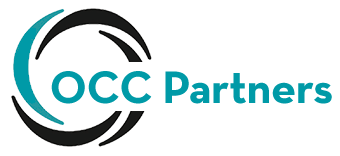Why Do I Have to Sell Myself in My Resume?
Hiring managers get dozens, if not hundreds of resumes from possible candidates. Strong resumes that grab the reader’s attention quickly and encourage them to read further improve a solid candidate being considered for the roles they want. Most of us don’t like to brag or ‘sell’ ourselves, but today it’s critical to insure you stand out from the crowd. If your resume doesn’t stand out, you may never get the opportunity to be considered further.
So, how do you make your resume stand out?

Understanding the fundamentals of how people read and review resumes will give you a head start in creating a strong resume.
Hiring managers and recruiters frequently review dozens of resumes. Because resumes aren’t the most interesting reading, most people want to review them as efficiently as they can to find the best candidate. As a result, if your resume is strong starting in the first half page of your resume, you’ll encourage the reader to read on.
To make your resume compelling right from the start you want to make your resume easy to read, with enough white space on the resume so the reader doesn’t feel overwhelmed as they begin to consider you as a candidate.
When you include a professional summary near the beginning, incorporating information that provides your business strengths, as well as your personal strengths you convey what you’ll be like on the job and as a member of the team. Are you a strategic thinker, a good problem solver, creative? Make sure you include some positive statements about your personal strengths.
In the body of your resume highlight your accomplishments and contributions. Many people feel they did ‘what was expected’ on the job, and don’t realize they made contributions such as a special project they took the lead on or the time they solved a problem implementing a process improvement or practice that improved outcomes. Think hard about even the smallest contributions you’ve made.
Historically resumes included statements that frequently started with…

Responsible for…
Managed…
Handled…
Use more compelling action verbs that catch attention. Start statements with an action verb since it’s easier for the hiring manager to identify what your actual contribution was.
Let’s consider a few accomplishments and contributions and compelling action verbs to highlight them.
Ex: You were the manager of a team. Try using verbs like cultivated, fostered, inspired, mentored, motivated, or aligned to highlight traits that differentiated you as a manager.
Ex: You worked in customer service. Try verbs such as advised, resolved, improved, or informed.
Ex: You met your goals, either revenue or a specific metric. Try adding verbs like surpassed, demonstrated, accomplished, or attained to differentiate your accomplishment.
Ex: You wrote documents or processes. You might want to use verbs like authored, composed, promoted, created, or reviewed.
Ex: You led a project team. Add verbs such as headed, organized, executed, or oversaw to catch the hiring manager’s attention more quickly.
As you’re considering what to include, focus on times when you increased revenue or saved the company time or money. Bottom line, accomplishments focused on savings or increased revenue are more significant.
Your resume and career history will make a bigger impact if you use dynamic action verbs to highlight your contributions and accomplishments. Verbs that are overused and anemic will diminish what you’ve done and may not get you to the next step. Using strong compelling words in your resume can compel the hiring manager to invite you to interview.
A strong resume is the beginning of a successful job search.
For more information about opportunities or next steps, check out our employment opportunities or contact us!



 If you’ve ever considered becoming a travel nurse, there’s lots of options today from local travel that keeps you in the communities you know, to faraway international travel roles that provide interesting new adventures. Travel Nursing can be an exciting career with lifelong opportunities and the demand is high. So, what does it take to make this your career?
If you’ve ever considered becoming a travel nurse, there’s lots of options today from local travel that keeps you in the communities you know, to faraway international travel roles that provide interesting new adventures. Travel Nursing can be an exciting career with lifelong opportunities and the demand is high. So, what does it take to make this your career?

 You’ve got your first interview coming up with the manager and you’ve prepared how to answer all the questions including why you’re looking for a new role. But have you thought about what questions you should ask?
You’ve got your first interview coming up with the manager and you’ve prepared how to answer all the questions including why you’re looking for a new role. But have you thought about what questions you should ask? Salary and compensation conversations should be kept general in the beginning of your meetings. Likely the recruiter will ask your salary, or salary range, and you can provide them current salary, desired compensation, or a range. However, if you provide a range, keep the range within $5-$7K, because whatever range you state, the employer hears the lowest number, while you’re thinking the highest end of the range. This disparity can result in an offer that disappoints.
Salary and compensation conversations should be kept general in the beginning of your meetings. Likely the recruiter will ask your salary, or salary range, and you can provide them current salary, desired compensation, or a range. However, if you provide a range, keep the range within $5-$7K, because whatever range you state, the employer hears the lowest number, while you’re thinking the highest end of the range. This disparity can result in an offer that disappoints. It’s important to have some knowledge of the individual you’re meeting, as well as the organization before you ask any or all questions. If you’re interviewing at a start-up, growth opportunities, training and mentoring may not be clearly outlined. However, if it’s a small start-up you’re interested in, it’s important to understand your manager’s philosophy to promoting people, and in the end, you’ll likely need to be more open to taking a risk. Well established companies often have formal development and/or training programs, so you’re likely to get more concrete information.
It’s important to have some knowledge of the individual you’re meeting, as well as the organization before you ask any or all questions. If you’re interviewing at a start-up, growth opportunities, training and mentoring may not be clearly outlined. However, if it’s a small start-up you’re interested in, it’s important to understand your manager’s philosophy to promoting people, and in the end, you’ll likely need to be more open to taking a risk. Well established companies often have formal development and/or training programs, so you’re likely to get more concrete information.
 An article in
An article in  Whether you’re smart or not, everyone makes mistakes and has flaws. But smart people make some unusually stupid mistakes. Smart people often respond too fast to simple questions, getting the answer wrong because they rely on knowing they’re smart, and don’t think about what the question is really asking. Smart people sometimes don’t ask questions when they should. Likely because they assume they already know the answers from past experience or knowledge they’ve gained.
Whether you’re smart or not, everyone makes mistakes and has flaws. But smart people make some unusually stupid mistakes. Smart people often respond too fast to simple questions, getting the answer wrong because they rely on knowing they’re smart, and don’t think about what the question is really asking. Smart people sometimes don’t ask questions when they should. Likely because they assume they already know the answers from past experience or knowledge they’ve gained.
 You took time out from your work, now you’re wondering…how do I explain it. Will it hurt my ability to get another job, much less a job I want?
You took time out from your work, now you’re wondering…how do I explain it. Will it hurt my ability to get another job, much less a job I want? Right from the start…on your resume is best. Use a chronological resume and put it on there. We can’t say it enough, transparency, transparency, transparency. You can state it like this on your resume:
Right from the start…on your resume is best. Use a chronological resume and put it on there. We can’t say it enough, transparency, transparency, transparency. You can state it like this on your resume: